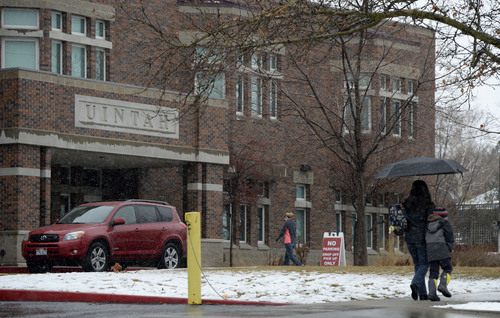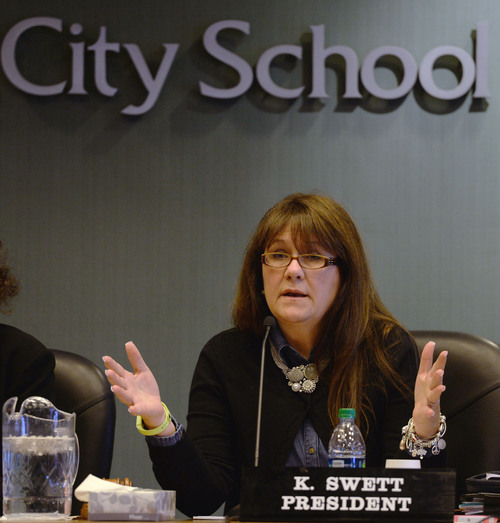This is an archived article that was published on sltrib.com in 2014, and information in the article may be outdated. It is provided only for personal research purposes and may not be reprinted.
The Utah Board of Education is looking at a model policy for school lunch programs in the wake of a fiasco at Salt Lake City's Uintah Elementary this winter.
A committee of the board, and likely the entire board, on Friday will consider a model that school districts and charter schools can use to create their own written breakfast and lunch payment policies regarding student debts.
In January, Uintah Elementary cafeteria workers took lunches from several dozen children who didn't have enough money in their accounts to pay for the meals.
"It's not just Salt Lake. It's an issue that goes throughout the state as to how to deal with those types of issues," said Bruce Williams, deputy superintendent at the Utah Office of Education.
The model policy spells out that schools need to communicate well with parents about money owed for meals and the consequences of not paying, and that children should never be confronted about delinquent accounts, nor have meals taken from their hands.
At Unitah, lunch workers dumped the food in the garbage and gave the children fruit and milk instead, embarrassing the children, enraging some parents and drawing national attention. The workers apparently had been ordered by a staffer at the Salt Lake City School District to take the action.
State board Chairman Dave Crandall said the model policy resulted from a conversation between Superintendent of Schools Martell Menlove and Gov. Gary Herbert after the Uintah Elementary affair.
The two leaders agreed that the state ought to give districts and charter schools some guidance, even if the policies are optional under federal and state law.
"My hope would be that something like that doesn't happen again," Crandall said Thursday.
Williams said that some of the 107 Utah districts and charter schools participating in National School Lunch Program have written policies, and many have practices that mirror those in the proposed model policy.
Following such a policy would allow a school to be proactive rather than reactive, he said.
"Much of the policy is about communication," Williams said. "We don't want to cause an undue burden on the student."
The model policy makes it clear that it's the parents' responsibility to make sure their accounts are paid up, unless the family is low-income and the child qualifies for free breakfast and lunch.
Schools should notify parents of delinquent balances via the school's automated lunch payment system, email, text messages, written notice by mail or carried home by the child, or by telephone. Williams said schools might want to use several of those methods.
"Schools may ask students to take notifications addressed to the parent home with them; however, the school may not tell students to 'remind' their parents to send money to the school. It is the parent's responsibility to pay the student's account," the model policy states.
Students should be told what action the school will take, if the parent hasn't paid, before the meal. "The school will take such actions as discreetly and sensitively as possible so as not to embarrass the student," the model policy says.
kmoulton@sltrib.com Twitter: @KristenMoulton





